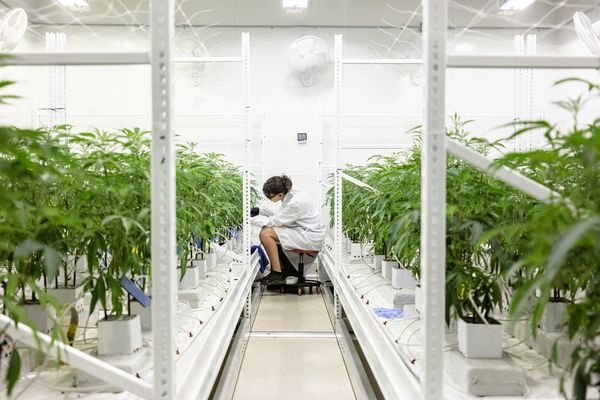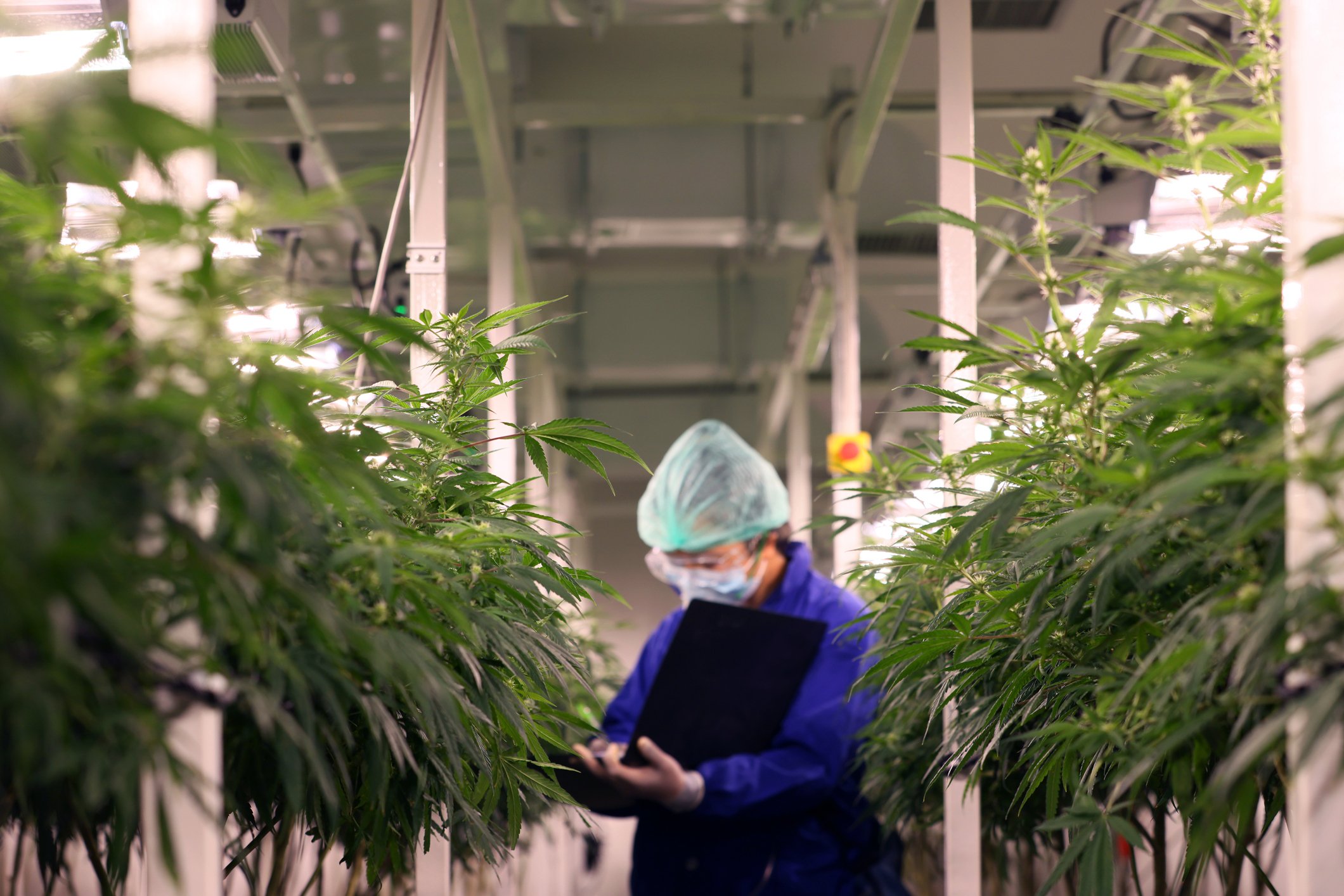The marijuana industry is absolutely firing on all cylinders this year, and investors have clearly taken notice. Our neighbor to the north, Canada, removed nine decades of recreational cannabis prohibition on Oct. 17, while two additional states legalized marijuana in some capacity in the U.S. during midterm elections. Beyond these major North American events, investors have also seen a slew of first-time occurrences in the weed industry in 2018.
But for as great as things have been for pot stocks, one thing is still missing: profits.

Image source: Getty Images.
Operating losses are pretty much a given right now for pot stocks
Last week, the most prolific marijuana stocks of the group reported their latest quarterly operating results, with a few notable trends emerging. To quickly summarize:
- Sales are surging.
- Fair-value adjustments to biological assets are unpredictable.
- Cannabis companies are cash-rich.
- Dilution is a long-term problem.
- Recreational cannabis isn't a factor yet.
- Marijuana stocks are losing a lot of money.
This last trend is to be expected. For instance, most growers are nowhere near their peak production capacity. Aurora Cannabis (ACB 2.96%), which following its ICC Labs acquisition could be on track for 700,000 kilograms in peak annual output, is only producing at a run-rate of 70,000 kilograms per year, according to its first-quarter operating results. Aurora will be spending liberally over the next two years to complete construction on all of its projects to become the production king.
Marijuana companies will also be spending quite a bit on marketing and branding solutions, laying the groundwork for international expansion, developing alternative cannabis products, and, in many cases, making acquisitions. Though we're probably talking about $5 billion in added annual sales in Canada within a few years, the cannabis space is crowded, meaning consolidation is likely.
Add this up, and the likelihood that pot stocks will produce quarterly losses is very high in the near term. Just ask shareholders of Aurora Cannabis and Canopy Growth Corp., which this past week saw their company's lose 111.9 million Canadian dollars and CA$214.6 million, respectively, on an operating basis (i.e., without one-time benefits and costs).

Image source: Getty Images.
This niche marijuana stock delivered a legit profit
However, something amazing happened this earnings season: A marijuana stock generated a profit. And not just the type of profit that was fueled by an investment gain from selling assets (ahem, Aurora Cannabis), or via a fair-value adjustment on biological assets under International Financial Reporting Standards. I mean a legit profit based on operating results, rather than one-time costs and benefits.
A little more than a week ago, real estate investment trust (REIT) Innovative Industrial Properties (IIPR +0.12%) reported its third-quarter operating results, which led to some happy investors. The company, which purchases medical cannabis growing facilities in multiple states and leases these facilities out for long periods of time, generated $3.93 million in revenue during the quarter, which was a 152% increase from the prior-year period. Much of this improvement was driven by the acquisition of new properties and, to a lesser extent, tenant reimbursements.
What really matters is that Innovative Industrial Properties was able to take its predictable business model and make considerably more with it than it did last year. In the year-ago quarter, it earned $334,000, or $0.09 per share on an adjusted basis. In the recently ended quarter, the company earned $1.83 million, which fell to $1.49 million after paying out its preferred stock dividend. Still, this worked out $0.22 per adjusted share. In terms of adjusted funds from operations -- AFFO is typically a more meaningful figure than earnings per share in determining the health of a REIT -- Innovative Industrial Properties delivered $0.38 per share on a diluted basis, representing an 81% year-on-year improvement.
Since REITs are required to pay out a significant portion of their funds from operations to shareholders in the form of a dividend to avoid traditional corporate income tax, the company lifted its quarterly payout by 40% to $0.35 per share. On an extrapolated basis (i.e., $0.35 times four), Innovative Industrial Properties now has an annual yield of nearly 3%.

Image source: Getty Images.
One risk, many rewards
Although it's probably tough to tell from a company that generated less than $4 million in sales, this is a business model with a lot of perks and predictability -- and Wall Street loves predictability.
For example, all of the leases Innovative Industrial Properties has entered into among its 10 properties have been for at least 15 years, with one as long as 20 years. This works out to an average lease term of 14.7 years as of the end of its most recent quarter, leading to cash flow predictability that you simply don't find in the cannabis industry.
What's more, these lease contracts allow the company to keep up with, or ahead of, inflation. Each year, a 3.25% aggregate rental increase is passed along, which compliments the 1.5% property management fee that it collects. These fees, along with its relatively fixed-cost model, ensure that, even sans acquisitions, the needle continues to point higher.
The one downside here that investors have to be aware of is that Innovative Industrial Properties isn't generating anywhere near enough cash flow to fund acquisitions from its operations. Instead, when it needs capital to purchase a medical cannabis facility, it's going to turn to common stock offerings. Subsequent to the end of the most recent quarter, it offered 2.99 million shares, with another 390,000 shares being exercised by underwriters. This raised net proceeds of $113.9 million, which should certainly tide this acquisition-hungry REIT over for a while. But be mindful that these share offerings can dilute the value of existing shares and make it more difficult for Innovative Industrial Properties to grow its AFFO on a per-share basis.
Though the rewards look to handily outweigh the risks, it's nevertheless a risk worth knowing and monitoring.







